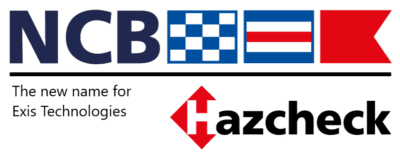Product Overview
The International Maritime Solid Bulk Cargoes (IMSBC) Code entered into force on 1 January 2011, replacing the former Code of Safe Practice for Solid Bulk Cargoes (BC Code). The requirements of this Code are mandatory under the provisions of the SOLAS Convention.
The prime hazards associated with the shipment of solid bulk cargoes by vessel are those relating to structural damage due to improper cargo distribution, loss or reduction of stability during a voyage and chemical reactions of cargoes. The primary aim of the IMSBC Code is to facilitate the safe stowage and shipment of solid bulk cargoes by providing information on the dangers associated with certain cargoes and instructions on the procedures to be adopted when loading such cargoes.
Appendix 1 of the IMSBC Code (the individual schedules) lists, alphabetically, most of the solid bulk cargoes presently being transported in commerce by vessel.
This online training course has been prepared as an overview of the IMSBC Code and to assist the training of people in the requirements and use of the Code. It should be of interest to ship’s officers, vessel operators, bulk terminal operators, stevedores, ship agents, surveyors and others in the maritime/bulk cargo field.
The course is based on the 2023 Edition of the IMSBC Code, incorporating Amendment 07-23. While this amendment may be applied voluntarily from 1 January 2024, it became mandatory on 1 January 2025.
To successfully complete this course, you will need access to a copy of the IMSBC Code. The course includes detailed references to various sections and individual schedules, and you will be required to interpret these schedules to answer specific questions.
Both the Online training course and the IMSBC Code eReader can be purchased directly clicking the appropriate option located at the right of this page. If you require more information about the IMSBC Code eReader click here.
Take the next step in ensuring safe bulk cargo operations with this essential training!
PREFER CLASSROOM OR WEBINAR TRAINING? CONTACT US TODAY TO DISCUSS YOUR REQUIREMENTS.
-
COURSE CONTENT
The course comprises of the following elements:
Introduction to the IMSBC Code – provides an introduction to the Code and looks at its aim, status, implementation and format.
General Provisions, Precautions, Safety and Cargo Acceptability – looks at the different groups of solid bulk cargoes, what to do if substance not listed in the Code, the required format and description of cargo, definitions, stress and stability concerns, and documentation requirements.
Technical and Safety Considerations – this covers the technical and safety considerations provided in sections 5-9 of the Code.
Waste, Security, Stowage Factors and References – this covers the waste, security, stowage factors and references in sections 10 -13 of the Code.
Individual Schedules of Solid Bulk Cargoes – provides and an overview and examples of entries in Appendix 1 and Appendix 4 of the Code
Supplement to the IMSBC Code – looks at the supplement specifically focusing on the BLU Code, BLU manual and entering enclosed spaces
-
COURSE FORMAT
The IMSBC Code e-learning course follows the well-established and tested format used in the range of NCB e-learning courses. It comprises of 6 individual lessons (elements). Students take the courses at their own pace or within a set timeframe and can monitor their own progress as they proceed.
COURSE COMPONENTS
Learn – tutorial screens in the course elements use text, graphics and animation.
View references – browse internet sources or cross reference material.
Test understanding – there is a test of the student’s understanding of the content with multiple-choice and graphic-based questions.
Course completion certificate – element test scores build towards a final Course Completion Certificate score.
-
BENEFITS
Cost-effective and flexible – typically a fraction of the cost of expensive classroom time and less disruptive than absence from work
Efficiency – delivers consistent training standards across global operations.
Certificate – course completion certificate is provided as a record of training.
Expertise – developed by established industry experts in the IMSBC Code and e-learning course development.











